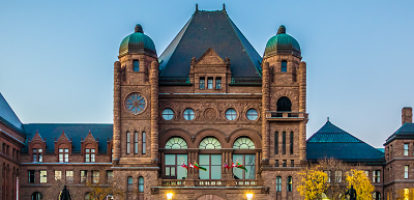From: Daniel Schwanen
To: The Right Honourable Justin Trudeau
Date: November 9, 2016
Re: Canada and the President Elect - Deal, or no Deal?
President-elect Trump’s victory speech in the early hours of November 9, made his economic focus quite clear: it will be on creating economic opportunities for all Americans, rebuilding US infrastructure, and dealing with other nations on terms which he considers fair for America.
These are goals that Canada should be able to live with and contribute to, and this is the message that you should emphatically convey to the President-elect.
Canadian governments have had a business-like approach to the United States, for the most part, and such an approach will continue to serve Canada well under a Trump presidency. It is founded on two key tenets
First, Canadians need to reassure the US that we have their back on security. With the Republican candidate’s campaign heavily tinged with distrust of “foreigners”, it will be imperative for Canada to illustrate to the US that while our approaches on migration will diverge, border security between Canada and the United States will keep adjusting to US risk tolerance levels, as we deem appropriate.
Second, Canada has been served well by constant, constructive engagement with the US on economic files. The key point of this engagement is to demonstrate that the relationship is not a zero-sum game: what is good for Canada in the bilateral relationship is also good for the US, and vice-versa. It may be difficult to maintain this theme against the anti-trade forces on both the nationalist right and the left.
Canada needs to wait and see whether President Trump, once in office, manages to persuade Congress and America’s trade partners to renegotiate the NAFTA. Such an outcome – renegotiation – is not as far-fetched as it seems, and Mr. Trump could then claim to have negotiated “better” deals.
Trade relations are not always about sweeping agreements. You can continue Canada-US cooperation to minimize the regulatory burden on businesses operating on both sides of the Canada-US border. You should also continue enhancing programs ensuring safe border passage, updating lists of skilled personnel eligible for temporary cross-border work, and on the management of common waters.
In any event, Canada should of course have a plan B, which would almost certainly involve reviving discussions with Japan on a trade agreement, and accelerating work on trade with China, and formally approaching the UK on a post-Brexit trade deal.
There will likely be starker differences between the two countries’ approach on tax and greenhouse gas reduction policies than would have occurred under a Clinton presidency and/or majority Democratic Senate. These differences may well narrow the range of policy options available to Canada on these two policy fronts, without putting Canadian industry at a costly disadvantage.
Canada risks being in a world where international policy coordination is not only difficult, but risks being jettisoned altogether. This is, without a doubt, a world inimical to Canada’s interests as a middle power. Trade and other rules facilitating international commerce and impartial resolution of disputes have always been in Canada’s interest as they make things easier for us.
Without two-way trade, and in particular trade with the United States, Canada’s standards of living would drop substantially, no matter how ingenious its peoples and vast its resources. It is important for you to keep business channels with the US open, and to that effect emphasize the solid contribution Canada can make to US security and standards of living. And be prepared with a plan B.
Daniel Schwanen is V.P. of Research at the C.D. Howe Institute
To send a comment or leave feedback, email us at blog@cdhowe.org.





